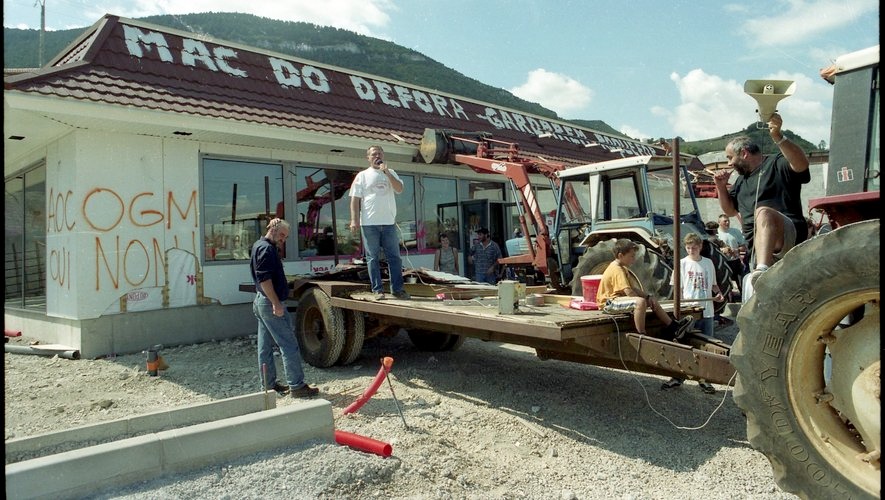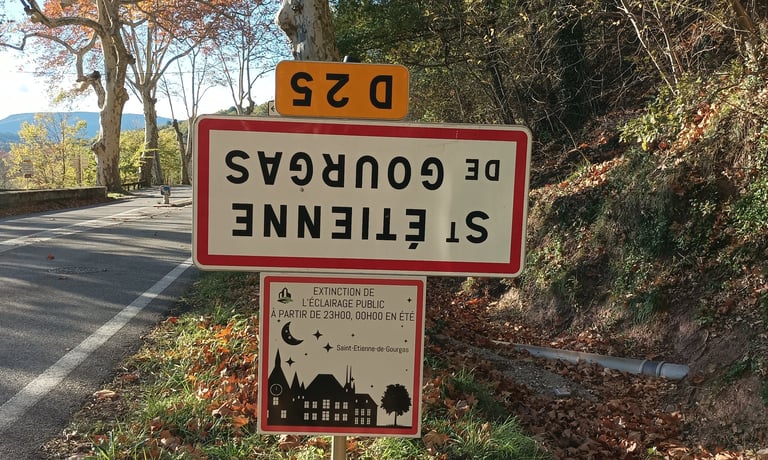
Anyone for a Macdo?
Non merci!
POLITICSPEOPLE AND RELATIONSHIPS
3/30/20253 min read
I always smile when I travel to Millau, in the Tarn Gorge. Last week was no different. For as you descend into the town from the south, there is a Macdonalds by the side of the road. Nothing remarkable, for there are sixteen hundred such restaurants in France. But this particular establishment is different, for that is where José Bové, the revolutionary French sheep farmer dumped a load of manure, or so I believed, as a protest against heavy American duties on luxury French products. His own very special Roquefort cheese was one of these targetted products. This happened in 1999, just before we came here. It has become a legend and José Bové is now a National hero. But today,as I start to look more closely into this legend, I find that I am slightly mistaken. The facts are different. But they do illustrate a revolutionary spirit and a willingness to protest, that is a strong feature of French life. I was reminded of this when I read in today's newspapers about 'Le Boycott.' There is a call in France to shun American products, as a protest against Donald Trump. These products include Coca cola, Tesla, KFC, and of course, Macdonalds.


So, what did happen,exactly, in 1999? Well, apparently José Bové organised a group of farmers , 'The Confédération Paysanne,' to dismantle the new Macdonalds that was being constructed at Millau. Many farmers gathered, and their protest was successful. He was later sentenced in the French courts to 3 months imprisonment, but 40,000 people turned up at his trial from all over the world to support him..


So...why did I think that the protest had involved a load of sheep's manure? Well apparently, just such a protest occurred outside the Macdonalds restaurant in Arles, not long afterwards.
Bové became such a hero amongst the French that he became known as the French Asterix. He is an articulate man with great charm, and that is partly the reason for his success. But he is not necessarily anti-American; his main stance is one of anti-globalisation. However, the MacDonalds protest did begin when the WTO (World Trade Organisation) allowed America to export hormone induced beef to Europe. Europe resisted , so America slapped heavy duties on European luxury goods such as Roquefort. As the saying goes: "Plus ça change."


We have long been familiar with French protests. It is a fiercely guarded right here. I first came across it in 1968 when I met a student from Paris at an International workcamp. She had taken part in the student riots there earlier that year, and her voice was still hoarse from inhaling tear gas. Since coming to live here we have grown used to protests, when lorries block roads or people gather to protest. I agree that it is an important right to be able to do so. But occasionally these protests can become tiresome, like the 'Gilets Jaunes' movement which sprung up to demonstrate against rising fuel taxes. It spread so widely, that the original cause became subsumed. Recently, protesting farmers turned our village sign upside down. This seemed a harmless way to protest, and initially I sympathised. However, when many people became compromised , I had to think again. Farmers were blocking roads all over France with their enormous tractors, while objecting to farming reforms that are needed to guard against worsening climate change, Clearly , the right to protest is essential in any democracy, and we must uphold it, but as with everything, the issues are complex.

